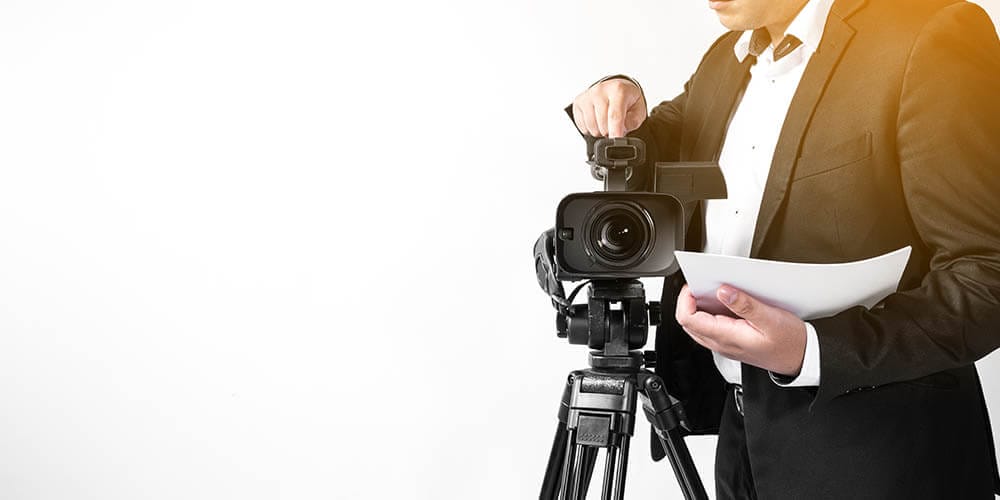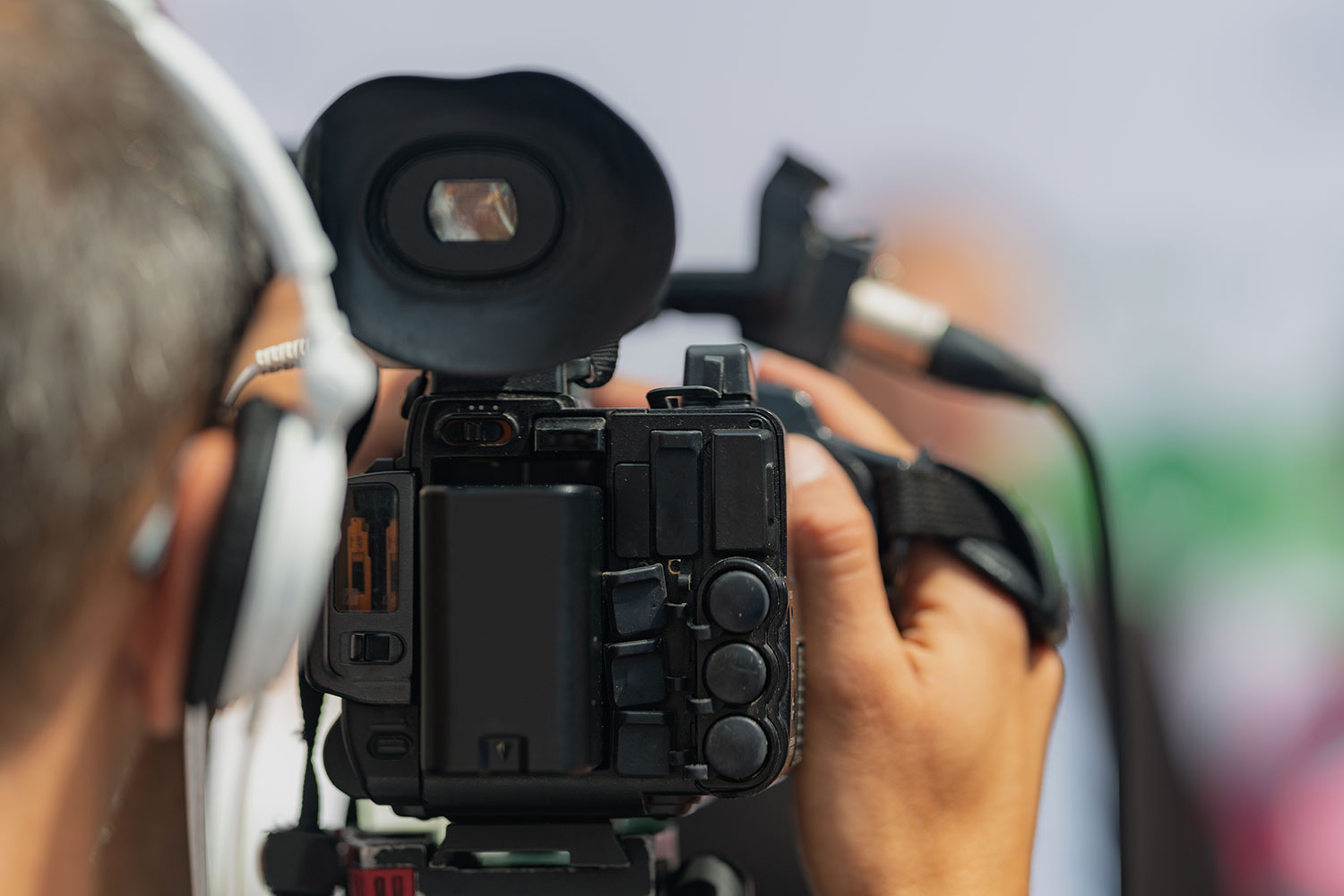The Function of Lawful Videography in Depositions and Trials
Lawful videography has emerged as a crucial tool in both depositions and trials, giving a multifaceted approach to recording witness testaments. As lawful professionals progressively identify its value, it motivates a much deeper examination of just how these visual documents can affect juror assumptions and test outcomes.
Significance of Lawful Videography
Lawful videography plays a pivotal role in the documents and discussion of depositions and trials. This specialized area combines technical skills with legal expertise to create a reliable document of proceedings that can substantially influence situation outcomes. The appearance of lawful videography enhances the understanding of witness testament, enabling jurors and courts to observe not just the spoken words yet likewise the disposition, emotions, and body language of the witnesses.

The significance of legal videography prolongs beyond the courtroom; it additionally plays an important duty in maintaining evidence for future reference, whether for appeals or more lawful action. Its combination into the legal procedure is vital for guaranteeing a reasonable and exact representation of the truths, inevitably adding to the pursuit of justice.

Process of Legal Videography
While capturing the nuances of depositions and trials, the procedure of legal videography entails several vital actions that make sure top quality, precise recordings. At first, a professional legal videographer prepares by reviewing the situation products and comprehending the details needs of the deposition or trial. This prep work consists of familiarizing themselves with the participants and the context, which helps in capturing essential details.
On the day of the recording, the videographer establishes the required equipment, which commonly includes high-definition cams, microphones, and correct illumination. Making certain ideal angles and audio top quality is important, as it straight affects the performance of the recording. The videographer interacts with lawyers and participants to develop procedures, making certain that everyone understands the recording procedure.
Throughout the deposition or trial, the videographer meticulously tapes the procedures, paying close interest to both verbal and non-verbal cues. legal videography. This consists of capturing the attitude and reactions of witnesses and lawyers. After the session concludes, the videographer might edit the footage for quality and compliance with lawful requirements, creating a last item that precisely shows the process for internet future reference and use in lawful contexts
Benefits in Depositions
The consolidation of videography in depositions provides numerous benefits that enhance the general procedure of collecting proof. One key advantage is the capacity to capture witness statements with aesthetic and acoustic integrity, giving a much more precise representation of the witness's behavior, tone, and body language. This multidimensional technique permits attorneys and juries to examine reliability better than traditional written records alone.
In addition, videographed depositions act as a powerful device for protecting testament. Needs to a witness come to be not available for trial, their videotaped deposition can be played in court, making certain that their evidence continues to be accessible and relevant. This facet significantly lowers the threat of losing vital info that might impact instance outcomes.
Additionally, using legal videography promotes better prep check over here work for attorneys. Assessing video footage permits lawful groups to evaluate and improve their methods, identifying staminas and weak points in their situations. This primary benefit can result in more compelling discussions in court.
Lastly, videography enhances the general expertise of the deposition process, instilling self-confidence in customers relating to the thoroughness of their lawful depiction. By leveraging technology, lawyers can substantially improve the performance of depositions.
Influence On Trials
In several trials, the assimilation of videography can significantly influence the discussion of evidence and the jury's understanding. Legal videography catches witness statements and essential evidence in a dynamic style, allowing jurors to involve with the product on multiple levels. This visual element improves the narration facet of a test, offering context and emotional resonance that typical text-based proof might do not have.
Furthermore, video clip recordings can act as powerful tools for impeachment throughout cross-examination. When inconsistencies emerge in between a witness's previous statements and their court room testimony, video clip proof offers an objective recommendation that can persuade jurors' point of views. This immediacy and clearness can bolster the reputation of a celebration's story while at the same time threatening opposing disagreements.
In addition, using videography can aid improve intricate details, making it more obtainable to jurors that may have a hard time to realize detailed details provided entirely with verbal testament. By combining visuals with auditory info, lawful videography can improve retention and understanding, inevitably influencing the jury's decision-making process. The impact of videography in tests prolongs beyond simple appearances; it plays a critical duty in forming the lawful landscape and results.
Future Trends in Legal Videography
As we look towards the future of legal videography, several emerging fads assure to improve its role more tips here within the court room. One significant trend is the integration of synthetic knowledge (AI) in video analysis and editing and enhancing - legal videography. AI can streamline the procedure of recognizing essential moments in recorded depositions, allowing lawyers to swiftly access appropriate content, consequently boosting performance in case prep work
Additionally, the increase of virtual reality (VIRTUAL REALITY) and augmented fact (AR) innovations is anticipated to transform just how jurors experience proof. By immersing jurors in a substitute setting, these technologies can supply a more extensive understanding of intricate situations, resulting in more educated considerations.

Furthermore, the increasing demand for remote depositions, accelerated by the COVID-19 pandemic, will likely continue. Legal videographers will certainly need to adapt to new software program and platforms to ensure high-grade recordings in digital setups.
Last but not least, the growing focus on data safety and security will demand stricter protocols for storing and sharing video clip proof. As the lawful landscape advances, lawful videographers need to stay abreast of these patterns to keep their relevance and efficiency in the judicial procedure.

Final Thought
In recap, legal videography serves a critical feature in the judicial procedure, enhancing the stability of depositions and tests. As technology proceeds to evolve, lawful videography is positioned to further transform its role within the lawful landscape.